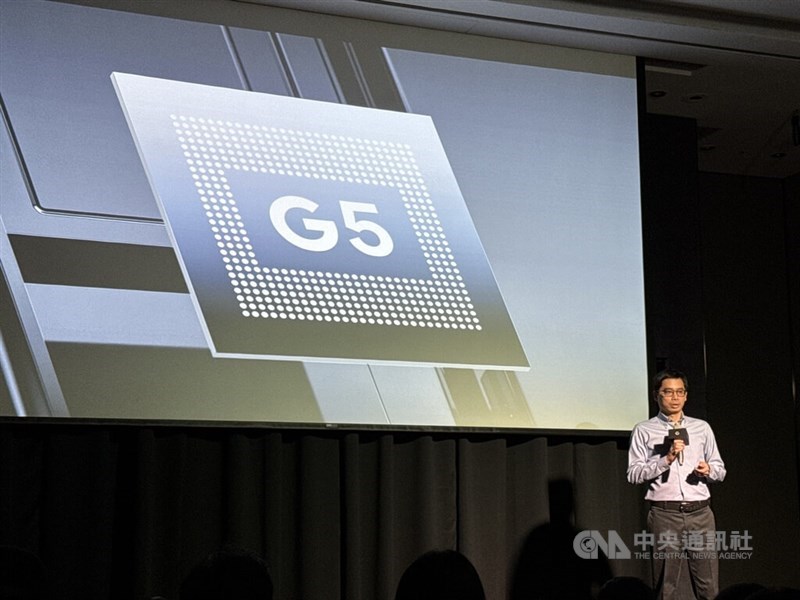
Taipei, Aug. 22 (CNA) U.S.-based tech giant Google on Thursday said it will continue to invest in Taiwan, as it praised the contributions of its Taiwan team to the latest Pixel 10 smartphone lineup.
Speaking with reporters, Elmer Peng (彭昱鈞), Google's vice president for hardware, said his company's research and development team in Taiwan already has thousands of employees, and that Google is recruiting more to cover a broad range of technologies, including hardware, software and semiconductors.
Peng said Google's R&D team in Taiwan is the company's largest outside the United States, adding that its ongoing recruitment campaign would target both Taiwanese nationals and foreign talent to help the company achieve its goal of developing a diversified range of products.
"Google's investments will allow the world to see the value of Taiwan's talent," Peng said.
In 2018, Google spent US$1.1 billion to acquire the ODM manufacturing assets of Taiwan-based smartphone brand HTC Inc., which had previously produced Pixel phones on a contract basis.
HTC also sold part of its extended reality (XR) business to Google for US$250 million in February 2025.
Peng said Google's Taiwan team has begun to play an increasingly important role in his company following the acquisition.
He added that he hoped more and more suppliers would join the XR ecosystem.
Peng's comments came after Google launched the latest Pixel 10 series -- Pixel 10, Pixel 10 Pro, Pixel 10 Pro XL and the foldable Pixel 10 Pro Fold.

The Pixel 10 lineup uses Google's self-developed Tensor G5 processor, production of which it has outsourced to Taiwan Semiconductor Manufacturing Co. (TSMC).
The Tensor G5 chips are made on TSMC's 3 nanometer process, the latest manufacturing technology the company has begun commercial production.
According to Google, the Tensor G5 processor is "our biggest upgrade yet and delivers a major performance boost" and "allows us to pack more transistors into the chip so it's more powerful and efficient."
Before the Pixel 10 lineup, Google had partnered with South Korea's Samsung Electronics Co. to manufacture processors for its phones.

The new four Pixel models came with the latest version of Google's on-device AI, Gemini Nano, which the company says runs 2.6 times faster and twice as efficiently as their predecessors due to performance gains from the Tensor G5 processor, eyeing a larger share in the global AI phone market.
The latest Pixel phones are equipped with "Voice Translate," which provides near real-time translation in the speaker's own voice in one of the supported languages: English to or from French, German, Hindi, Indonesian, Italian, Japanese, Portuguese, Russian, Spanish, and Swedish.
The Pixel 10, Pixel 10 Pro and Pixel 10 Pro XL will be available in Taiwan on Aug. 28 while the Pixel 10 Pro Fold will hit stores on Oct. 9.
- Business
Taiwan's Starlux Airlines to launch flights to Prague on Aug. 1
02/04/2026 09:28 PM - Business
Taiwan companies optimistic on enclosed-cabin scooter plan
02/04/2026 08:58 PM - Cross-Strait
MAC slams '1992 Consensus' push after CCP, KMT top figures meet in Beijing
02/04/2026 08:43 PM - Society
'Shanlan' tourism train arrives in Tainan
02/04/2026 08:37 PM - Business
NT$6 food delivery fee wins NT$10 million in Taiwan's lottery invoice
02/04/2026 08:22 PM